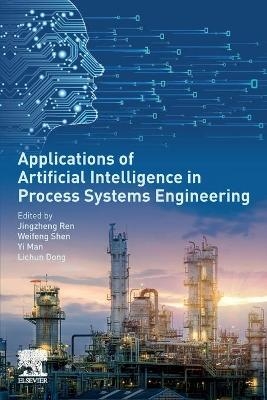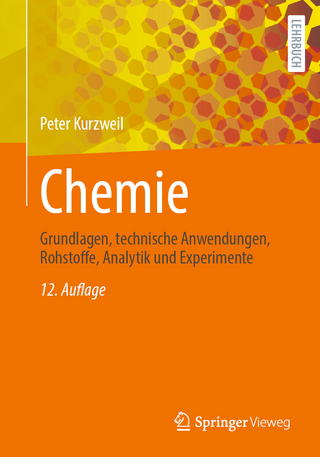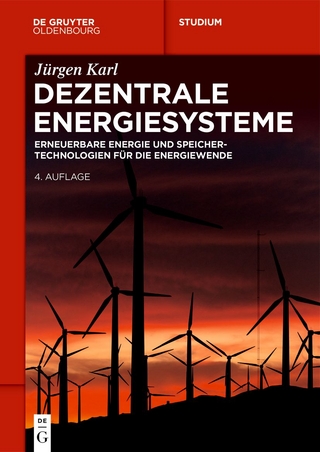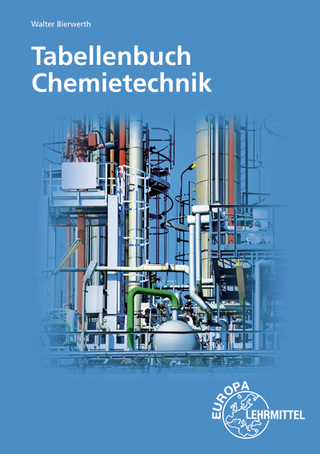
Applications of Artificial Intelligence in Process Systems Engineering
Elsevier Science Publishing Co Inc (Verlag)
978-0-12-821092-5 (ISBN)
With process systems engineering's potential to become one of the driving forces for the development of AI technologies, this book covers all the right bases.
Jingzheng Ren is Assistant Professor of Modelling for Energy, Environment and Sustainability at the Department of Industrial and Systems Engineering of Hong Kong Polytechnic University (PolyU). He has also been nominated as adjunct/honorary associate professor of University of Southern Denmark (Denmark) and associated senior research fellow of the Institute for Security & Development Policy (Stockholm, Sweden). Prof. Ren serves as board member of several scientific journals and published more than 150 papers, authored 1 book, edited more than 10 books and published more than 40 book chapters. His research focuses on process system engineering for better sustainability and mathematical models for solving energy and environmental problems and promoting sustainability transition Dr. Weifeng Shen is currently a Professor in chemical engineering at Chongqing University. He obtained his PhD in 2012 at University of Toulouse, France. He worked as a Research Associate at Clarkson University, USA, from 2012 to 2015. He was selected as the "Young Top-Notch Talents ", the "High Level Talents" in Chongqing Province and the " Hundred Young Talents" of Chongqing University. His current research interests reside on artificial intelligence based green chemical products and sustainable processes developments. He has published more than 30 papers in Peer-Reviewed Journals including AIChE Journal, Energy, Industrial & Engineering Chemistry Research. Dr. Yi Man is currently an Assistant Professor of Process Systems Engineering of South China University of Technology. He has engaged in the teaching and research work in the scientific field of artificial intelligence based process system engineering for a long time. He is active member in China Technical Association of Paper Industry and System Engineering Society of China. He has published more than 30 papers on AI based chemical engineering with focus on methodological aspects of the algorithms development and application of case studies. Dr. Lichun Dong is a Professor of Chemical Engineering and Deputy Dean at School of Chemistry and Chemical Engineering, Chongqing University. Prof. Dong received his BS degree in chemical engineering at Hebei University of Technology in 1993; and his MS degree in industrial catalysis at Tianjin University in 1996. After spending three years in industry as a process engineer, He went to University of Alabama, USA, in 1999 and received his Ph.D degree in chemical engineering in 2004. Afterwards, he was a postdoctoral scientist in Lehigh University before going back Chongqing University as an Associate Professor in 2007. Prof. Dong’s research focuses on: 1). Process System Engineering for better Sustainability; 2).Nanocatalyst and Nanomaterials; 3). Chemical Process Simulation and Optimization. He has authored or co-authored more than 100 papers in the leading refereed journals including AIChE J, Industrial & Engineering Chemistry, Energy, Renewable & Sustainable Energy Reviews, Chemical Engineering Science, Metabolic Engineering, and granted 18 invention patents.
Part I: Introduction of AI and Big Data Analytics 1. Artificial Intelligence in Chemical Engineering: Past, Current, and Prospect. 2. Big Data Analytics in Process System Engineering 3. Advanced Computational Tools and Platform for Artificial Intelligence
Part II: Property Prediction 4. Applications of Artificial Neural Networks for Thermodynamics: Vapor-Liquid Equilibrium Predictions 5. Support Vector Machines for The Prediction of Physical-Chemical Properties 6. Thermodynamics Prediction: Neural Networks Based Quantitative Structure Property Relationships 7. Intelligent Approaches to Forecast the Chemical Property: Case Study in Papermaking Process
Part III: Process Modelling 8. Artificial Neural Networks for Modelling of Wastewater Treatment Process 9. COD Forecasting Based LSTM Algorithm for Wastewater Treatment Process 10. Comparisons of Deep Learning Methods for Process Modelling: A Case Study of Bio-Hydrogen Production 11. Deep Learning Based Energy Consumption Forecasting Model for Process Industry 12. Chemical Green Product Design Assisted with Machine Learning: Theory and Methods
Part IV: Process Control and Fault Diagnosis 13. Artificial Intelligence for the Modelling and Control of Chemical Process Systems 14. Artificial Intelligence for Management and Control of The Pollution Minimization 15. Neural Network Based Framework for Fault Diagnosis 16. Application of Artificial Intelligence in Process Fault Diagnosis
Part V: Process Optimization 17. Bi-Level Model Reduction for Multiscale Stochastic Optimization of Cooling Water System 18. Artificial Intelligence Algorithm Based Multi-Object Optimization of Flexible Flow Shop Smart Scheduling 19. Electricity Scheduling Optimization Model for Flexible Production Process 20. Data-driven?multistage adaptive robust?optimization?framework for planning and scheduling under uncertainty
| Erscheinungsdatum | 21.06.2021 |
|---|---|
| Sprache | englisch |
| Maße | 152 x 229 mm |
| Gewicht | 860 g |
| Themenwelt | Naturwissenschaften ► Chemie ► Technische Chemie |
| Technik | |
| ISBN-10 | 0-12-821092-3 / 0128210923 |
| ISBN-13 | 978-0-12-821092-5 / 9780128210925 |
| Zustand | Neuware |
| Haben Sie eine Frage zum Produkt? |
aus dem Bereich


